A nurse is teaching nutritional strategies to a client who has a low calcium level and an allergy to milk. Which of the following statements by the client indicates an understanding of the teaching?
I Will add broccoli and kale to my diet."
I will stop taking my calcium supplements if they irritate my stomach."
I need to avoid foods with vitamin D because I am allergic to milk.
I will eat more cheese because I can't drink milk.
The Correct Answer is A
Broccoli and kale are good sources of calcium, and by adding them to their diet, the client can increase their calcium intake without consuming milk. It is important to note that some calcium supplements may irritate the stomach but stopping them altogether is not advisable without consulting a healthcare provider. Vitamin D is not a milk product, and it is essential for calcium absorption. Avoiding foods with vitamin D can worsen the low calcium levels. Cheese is a milk product and may not be suitable for someone with a milk allergy.
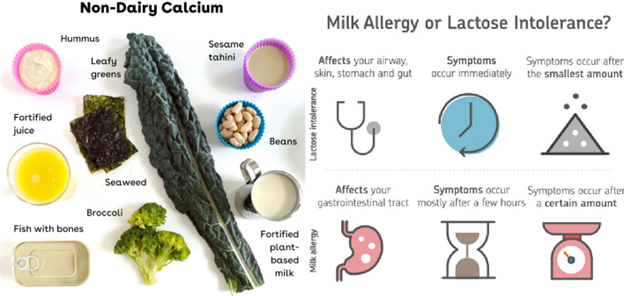
Nursing Test Bank
Naxlex Comprehensive Predictor Exams
Related Questions
Correct Answer is B
Explanation
Based on the given documentation, the nurse suspects that the client has respiratory alkalosis. The client's ABG results show a pH of 7.52, which indicates alkalosis and the PaO2 level is slightly low, suggesting respiratory involvement. Rapid breathing (RR44) and wheezing also support the possibility of respiratory alkalosis.
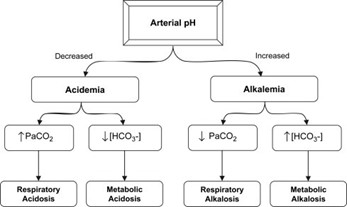
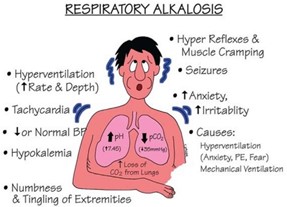
Correct Answer is B
Explanation
Furosemide is a loop diuretic that works by blocking the reabsorption of sodium and chloride in the ascending loop of Henle in the kidney, leading to increased urine output. However, this medication can also cause potassium loss through increased urinary excretion, which can lead to hypokalemia (low potassium level). Hypokalemia can cause confusion, weakness, and other neurological symptoms.
The normal range for serum potassium is 3.5 to 5.0 mEq/L. A potassium level of 2.9 mEq/L is below the normal range and is considered hypokalemic. Therefore, the nurse should correlate the client's confusion with the low potassium level and notify the healthcare provider to adjust the medication or provide potassium supplements if indicated.
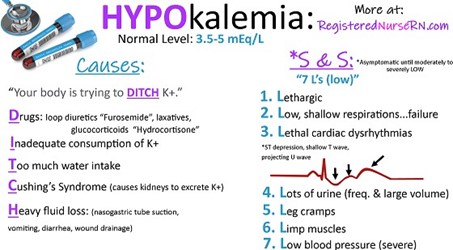
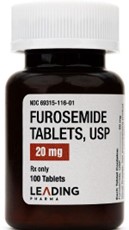
Whether you are a student looking to ace your exams or a practicing nurse seeking to enhance your expertise , our nursing education contents will empower you with the confidence and competence to make a difference in the lives of patients and become a respected leader in the healthcare field.
Visit Naxlex, invest in your future and unlock endless possibilities with our unparalleled nursing education contents today
Report Wrong Answer on the Current Question
Do you disagree with the answer? If yes, what is your expected answer? Explain.
Kindly be descriptive with the issue you are facing.
